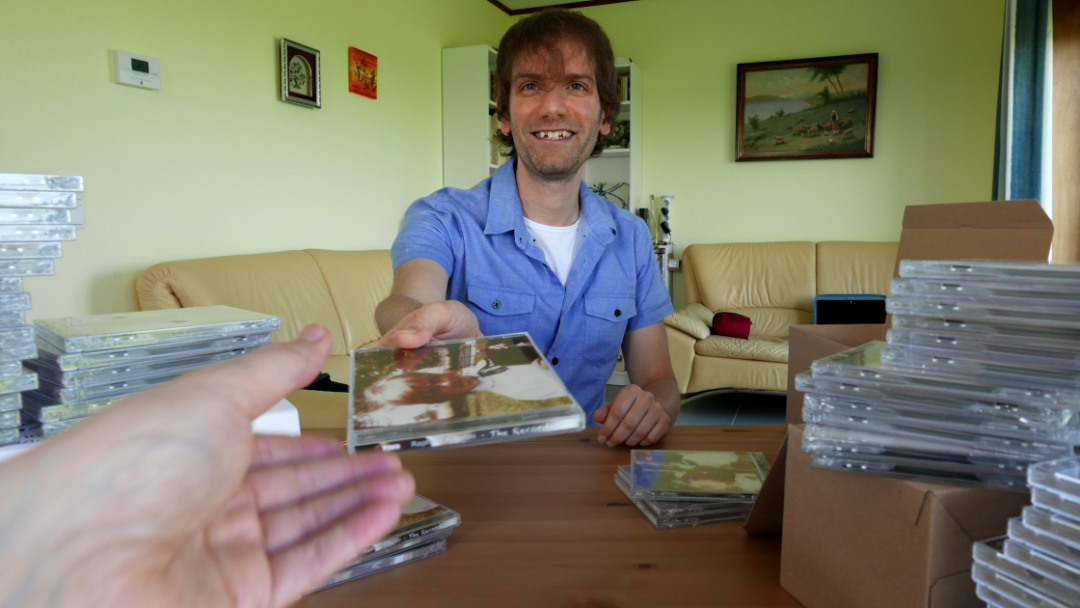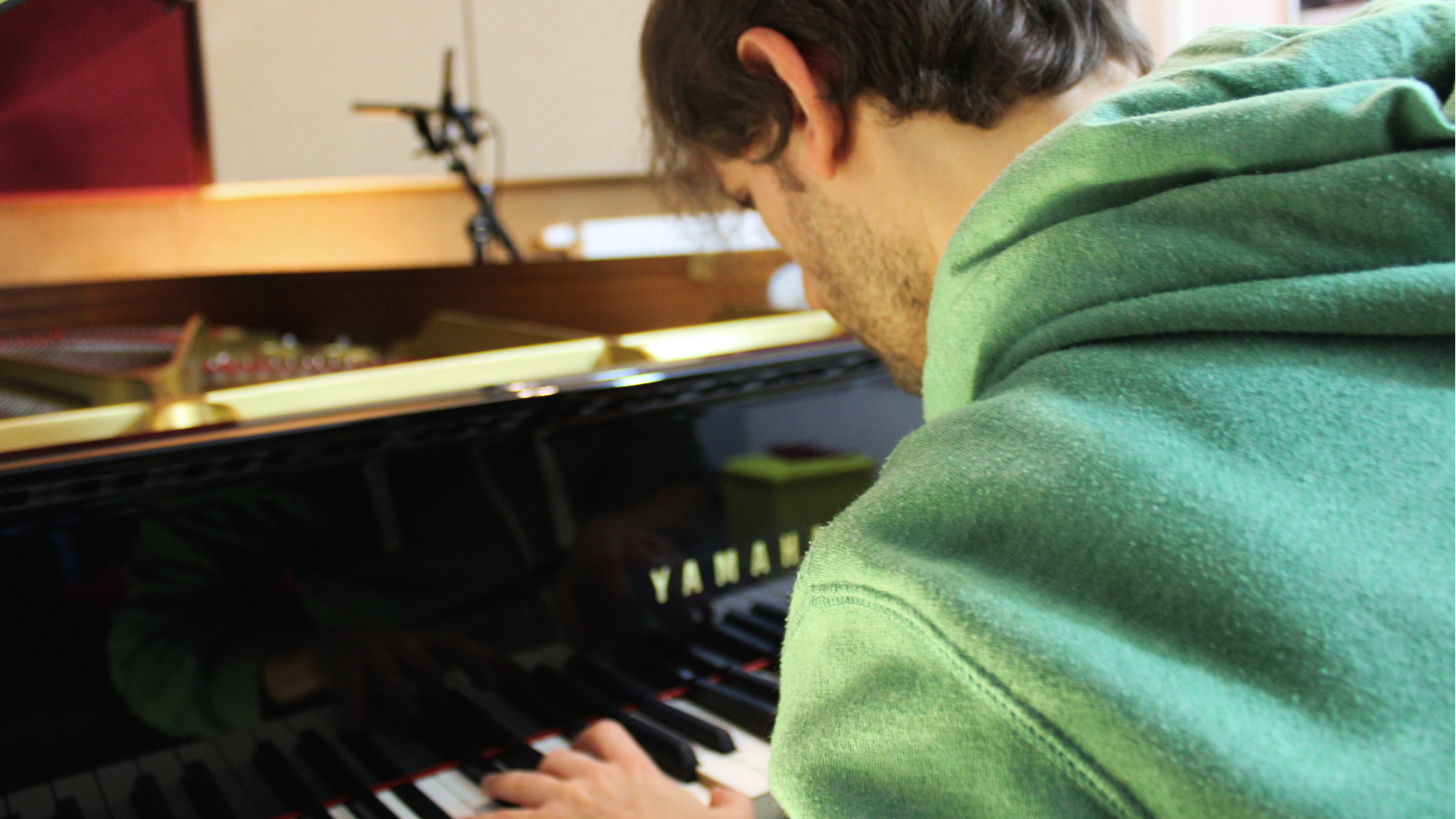MUSICEXISTENCE

Single Review: Raphaël Angelini – “Revolutionary Étude, Op. 10, No. 12”
April 30, 2021
Classical music touches us in a way that nothing else in the aural spectrum can; through the divinity of its most powerful arrangements and the players who would seek to make them their very own, we connect with an iconic medium within human artistry as ancient as culture itself. Raphaël Angelini is gifted with the ability to translate some of the best tonal offerings this genre has to offer, and in his new recording of Chopin’s “Revolutionary Étude, Opus No. 10-12,” he makes it just about impossible for any critic alive to question his musicianship (and, more importantly, his commitment to disciplined play).
WEBSITE: https://www.raphaelangelini.com/
The video for this release highlights the ease with which Angelini commands the keys when he takes to the piano, and although I had assumed a certain element of his prowess would be evident in the visuals here, it’s perhaps through the unadorned imagery that we best understand how inhuman the feat he’s performing actually is. Rather than broaching Chopin’s style with a mere appreciation for the emotion tempo can create, he immerses himself in the aggression of this piece and understatedly throttles every key beneath his fingertips with a precision that takes years to master. His calm is impressive, but not nearly as much as his attention to detail is.
There’s a certain ominousness to the melody reduced by the rhythm of this composition as it’s constructed by Raphaël Angelini, but this too only serves to spotlight another component of his artistic charms – his multilayered technique. Instead of banking on a single emotion here, he’s shredding through a bevy of different feelings controlled entirely by the pace at which he’s melding one resonating note with the next, and despite the commonality of classical virtuosity in 2021, his is still a take on these movements I wouldn’t compare to any other in recent memory.
It’s difficult for me to speak on behalf of anyone who isn’t myself, but something in my gut as a music critic tells me Chopin would be very proud of what Raphaël Angelini has done with this piece, specifically with regards to the preservation of its original integrity while still putting a very unique signature on the composition I’d be unlikely to hear from another artist.
The angst of the keys is never hesitant, nor does it ever become excessive in the grander scheme of things, and our leading man’s delivery is the sole reason why. He’s making it so that no one within earshot can remove themselves from the deluge of melodic charisma that comes undone the moment he starts to play. We feel everything at once because he wants us to, and had Angelini wanted to go for something a little more staggered, I haven’t any doubts he would have produced a different track than the one before us today.
It’s difficult for me to speak on behalf of anyone who isn’t myself, but something in my gut as a music critic tells me Chopin would be very proud of what Raphaël Angelini has done with this piece, specifically with regards to the preservation of its original integrity while still putting a very unique signature on the composition I’d be unlikely to hear from another artist. Angelini is as elite a pianist as we could be introduced to in modern times, and if he’s this adept at the most advanced of classical models, I can’t help but wonder what he could accomplish in more experimental ventures.
David Lee Marshall
___________________________________________________________
TO MUCH LOVE MAGAZINE

“REVOLUTIONARY ÉTUDE OPUS NO. 10-12” FROM RAPHAËL ANGELINI
There’s a sense of unyielding vitality waiting to come alive for all who listen to the rendition of Chopin’s “Revolutionary Étude, Opus No. 10-12” from Raphaël Angelini this April, and whether you’re a big fan of the classical genre or not, I believe it’s bound to have a major effect on you. It’s difficult to put the moodiness of the keys as they dance amongst one another in this recording into words, even as a professional music critic, but if there is anything certain about Angelini’s offering in this release, it’s that he deserves the respect we afford our most accomplished of players.
URL: https://www.raphaelangelini.com/
Here, we find nothing to get in the way between an artist’s objective and the audience he’s blessing it with, and while there’s a bit of urgency in the connecting of one melodic arc to the next, it’s scarce that Angelini ever sounds like he’s in over his head. On the contrary, he’s got a relaxed disposition in this performance that is enough to raise more than an eyebrow or two in critics circles right now, and I think you’ve got to hear this marvelous cut to completely understand what I’m talking about.
You can feel the passion in Angelini’s playing style just through the deliberate nature of his moves, which correlate to exploit the underlying menace and retrospection that skulks about in the shadows of “Revolutionary Étude, Opus No. 10-12.”
You can feel the passion in Angelini’s playing style just through the deliberate nature of his moves, which correlate to exploit the underlying menace and retrospection that skulks about in the shadows of “Revolutionary Étude, Opus No. 10-12.” He wants to get every ounce of heart that he can out of this composition, and given the supreme legend of the man who first put it to paper, the task being undertaken here should not be scoffed at. It takes something special to make this music sound rich and endearing in the way it was always meant to, and I believe he’s got it.
If you’ve yet to hear what Raphaël Angelini can do on the piano, his “Revolutionary Étude, Opus No. 10-12” is a brilliant introduction to his abilities and the grasp he has for the genre he’s chosen. There’s no shortcutting the listener in a performance as complex as this one; we’re getting everything he can muster in the setting he’s recorded the track in, and while I don’t think he’s the only player of note in his corner of the world, I would be foolish to dismiss what he’s contributed in this release as being anything less than brilliance in high-definition, stereo sound.
John McCall
Source :
https://toomuchlovemagazine.com/revolutionary-etude-opus-no-10-12-from-raphael-angelini/
____________________________________________________
INTERVIEW (Muzique Magazine)

Source : https://muziquemagazine.com/muzique-magazines-exclusive-interview-with-raphael-angelini/
HIP VIDEO PROMO
His descending left-hand runs are pure thunder, and his right hand is like a tolling bell. Every note he strikes is precise and passionate: his command is total, and his understanding of the music is complete.
Raphaël Angelini
“Revolutionary Étude, Op. 10, No. 12”
Directed by Raphaël Angelini & Alessandro Bevilacqua (Add date – 4/12/2021)
Source : https://www.hipvideopromo.com/clients/raphael_angelini/
About Raphaël Angelini
It might sound counterintuitive, but it’s true: no form of art is better positioned to benefit from the video revolution than classical music. Classical compositions are certainly exciting to hear, but they’re even more rewarding to watch: they require feats of astonishing dexterity and poise. Classical pieces are physically demanding to perform, and classical musicians often exhibit tremendous charisma while they’re playing. Raphaël Angelini isn’t exclusively a classical musician – he’s applied his formidable instrumental talent to all kinds of different compositions – but when he sits down at the piano to play a piece, he does so with the confidence of a virtuoso and the energy and presence of a rock star.
About “Revolutionary Étude”
And it’s a pretty good bet that Franz Liszt, who was treated as a megastar in the nineteenth century, would approve of Angelini’s powerful performance of the “Revolutionary Étude.” The great Polish composer Frédéric Chopin, who wrote the piece for solo piano, dedicated the “Étude” to Liszt, who was probably one of the few musicians in Europe who possessed the skill required to play it. The “Revolutionary Étude” demands spectacular dexterity from the pianist’s left hand – tremendous strength and speed, and absolute independence. To do it right, the left hand must play a quick and tricky rhythm while the right hand must dance wildly to a different beat at the top of the keyboard. To watch it played properly is a physical delight as well as a musical one.
About the video
Angelini plays it right. His descending left-hand runs are pure thunder, and his right hand is like a tolling bell. Every note he strikes is precise and passionate: his command is total, and his understanding of the music is complete. The video of Angelini in action puts all of his magnetism and musicianship on display. This is no simple performance clip: Angelini is shot from several different angles, each of which is revealing. The camera on his fingers reveals his superb technique, his precise articulation, and his facility with passages that have humbled generations of pianists. The side camera shows Angelini’s face and his look of absolute concentration and sheer pleasure. Then there’s the camera fixed on the hammers and strings of the piano that Angelini plays – and not only does it reveal the majesty and beauty of the instrument, it also testifies to the force and sheer power of the pianist’s hands. Chopin, and Lizst, would certainly understand. We don’t have a video of those two rock stars in action. But if we did, we imagine it would look a lot like this.
OTHER LINKS
Want more from Raphaël Angelini and HIP Video Promo?
We’re delighted to team up with Raphaël Angelini to promote his “Revolutionary Étude” music video! Please let us know what we can do to secure a spot for this video in your programming and online presentations or if you’re like us to send some merch for contests and giveaways. For more info, reach out to the HIP Video Promo team at 732-613-1779 or info@HIPVideoPromo.com, or visit www.raphaelangelini.com.






